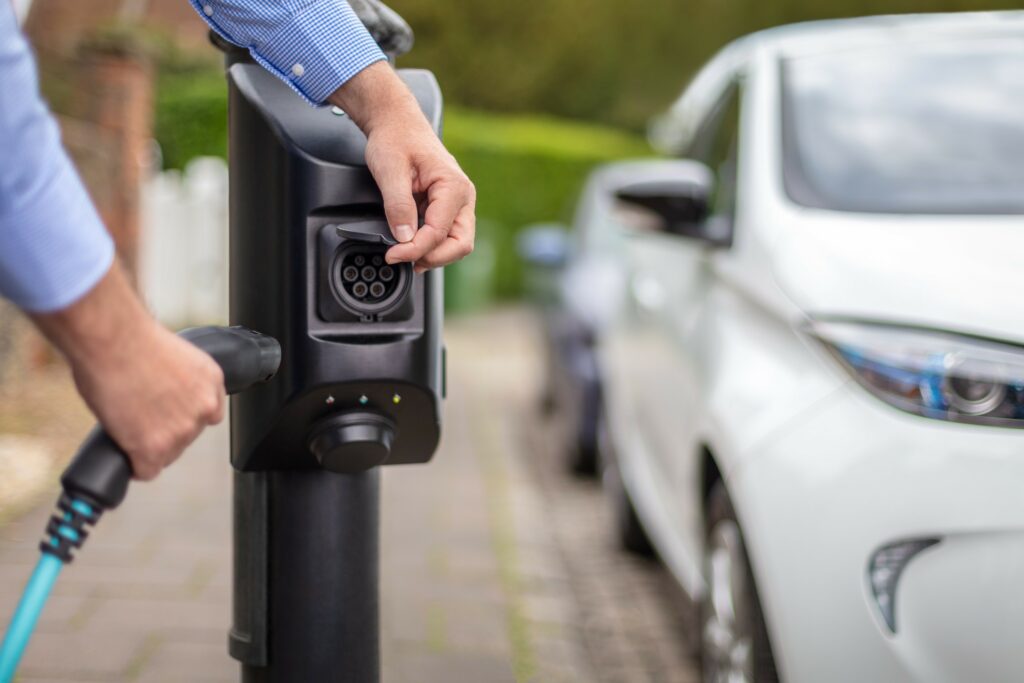Funding for the future installation of over 8,000 on-street electric vehicle (EV) chargepoints has been awarded, but the AA has warned the government is on track to miss its deployment targets.
This funding has been awarded through the On-Street Residential Chargepoint Scheme (ORCS), which part funds chargepoints for local authorities, for 8,415 charging devices to be installed in the future as of 1 April.
That’s according to new figures from the Department for Transport, which also show that ORCS has funded 2,641 public charging devices in total across the UK.
More must be done to promote on-street charging, the AA has said in response to these figures, in order to meet the DfT’s deployment estimates, as outlined in the Electric Vehicle Infrastructure Strategy.
Indeed, in the strategy the government outlined future chargepoint requirements, estimating that between 280,000 and 720,000 public chargepoints could be required in 2030 to support the transition to EVs.
A number of scenarios were modelled in the document, with the figure for the number of on-street chargepoints required varying, including 125,000 in a low uptake, high workplace charging scenario to 270,000 in a low uptake, high on-street charging scenario and 70,000 in a low uptake, high destination and on-route charging scenario.
In order to meet the 125,000 figure, the installation rate must increase to over 1,000 chargepoints a month, the AA said.
“We should also remember that that many rural areas suffer from a lack of off-street parking and we are concerned that on-street charging could become bookmarked as an urban problem,” Jack Cousens, head of roads policy for the AA, said.
He said that only 87 out of almost 400 councils across the UK have applied for the ORCS since 2017 – mirroring previous industry and government findings.
Indeed, in 2018, government ministers urged local authorities to take up the ORCS funding following “extremely disappointing” initial take up.
A year later, Centrica Business Solutions found that 126 councils across the UK had no concrete plans to install any more EV chargers before the end of 2025.
Cousens also pointed to how charging from a lamppost is cheaper than a typical on-the-road rapid chargepoint, with costs as low as 24p/kWh compared to around 45p/kWh for a rapid charger. Meanwhile, those with a home chargepoint can charge at even cheaper rates via EV tariffs.
“Costs for on-the-road street charging could become more affordable should the government match our calls to cut VAT on public charging to mirror domestic energy costs,” Cousens said.
This has been a key ask of some in the industry in the past year following HMRC confirming the rate on electricity used for public charging is 20%.
Other figures released by the DfT include that two Office for Zero Emission Vehicles (OZEV) funded schemes – the Electric Vehicle Homecharge Scheme (EVHS) and the DRS – have delivered 331,882 domestic charging devices since 2013.
Specifically, the EVHS has funded the installation of 291,549 domestic charging devices, with 121,001 of these being in the past year – an 86% increase compared to the previous 12 month period.
Meanwhile, the Workplace Charging Scheme (WCS) has funded the installation of 26,424 sockets in workplace carparks since the scheme started in 2016.
The AA’s commentary comes as it announces a new partnership with Mer to offer dedicated phone line support, providing technical help for the chargepoint and to the vehicle if a customer needs it. It’s hoped this will enable stranded EV drivers to continue their journey as quickly as possible, the AA said.
Drivers experiencing issues starting/stopping a charge or a stuck cable will be able to ring the helpline number on the charger, with a member of the AA team will then be there to assist them 24/7.
The AA is now working with Mer to trial field support, with the AA’s Fuel Assist technicians being trained to do safe isolation work on a post and provide a fault triage service that involves recommending next steps, including escalating fixes to Mer to assign a trained electrician if needed.






